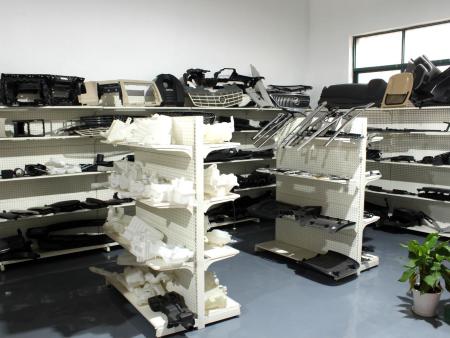Clean Edge Ultrasonic Cutting Knife Thermoplastic Blade Replaceable
Description| Frequency: | 30khz | Blade Material: | Titumium |
|---|---|---|---|
| Cutting Thickness: | 1~7mm | Applcation: | Cloth Cutting |
| Power: | 500W | Operate Type: | Hand Or Robot |
| High Light: | ultrasonic food cutter,ultrasonic slitting machine | ||
30khz durable Ultrasonic fabric cutting system with robot to cut cloth.
Parameter
Introduction
The principle of ultrasonic cutting machine is completely different from cutting in the traditional sense. Traditional cutting uses a knife with a sharp edge to press the material to be cut. This pressure is concentrated at the cutting edge, and the pressure is very large, exceeding the shear strength of the material being cut, and the molecular binding of the material is pulled apart and cut off. Because the material is pulled apart by strong pressure, the cutting edge of the cutting tool should be very sharp, and the material itself must withstand relatively large pressure. It is not efficient to cut soft and elastic materials.The ultrasonic cutting machine uses the energy of ultrasonic waves to locally melt the material to be cut, so as to achieve the purpose of cutting the material. Therefore, ultrasonic cutting does not require sharp edges, nor does it require great pressure, which does not cause chipping and breakage of the material being cut. At the same time, because the cutting blade is performing ultrasonic vibration, the friction resistance is particularly small, and the material to be cut is not easy to stick to the blade. This is particularly effective for cutting viscous and elastic materials, frozen materials such as food, rubber, non-woven fabrics, etc., or objects that are inconvenient to press.
Basic structure and characteristics
Ultrasonic cutting machine is a type of equipment that uses wave energy for cutting processing. It is characterized by cutting without edge. In other words, there is no need for a traditional cutting edge. Traditional cutting uses a knife with a sharp edge to press the material to be cut. This pressure is concentrated at the cutting edge, and the pressure is very large, exceeding the shear strength of the material being cut, and the molecular binding of the material is pulled apart and cut off. Because the material is pulled apart by strong pressure, the cutting edge of the cutting tool should be very sharp, and the material itself must withstand relatively large pressure. It is not good for cutting soft and elastic materials, and it is more difficult for viscous materials.
Advantages
o Integrating welding and cutting processes
o Can be used on films and packaging materials, even in the presence of contamination in the sealing area
o Suitable for textiles containing thermoplastic elastomers or non-elastomeric thermoplastics
o Fast and reliable
o Can connect multiple layers of material at once
o No need for additional punching equipment
o High repeat consistency
o Can realize full monitoring of welding process parameters
o Flexible design
o Predictable output
o Die-cut edges are smooth with no sharpness and no threads
o Environmentally friendly technology
o Low energy consumption and short cycle
o No additional consumables needed
o Recyclable for specific products
Application:
Ultrasonic cutting equipment is suitable for cutting:
- Thermoplastics (plates, sheets, films, laminates)
- Carbon fiber CFRP
- Rubber (vulcanized latex, non-vulcanized latex, film material, tube)
- Composites (prepregs, polyethylene fibers, carbon molded products or glass fibers (GFRP))
- Resin
- Silicone
- food
- foam
- Paper (honeycomb)
- PVC foam board
